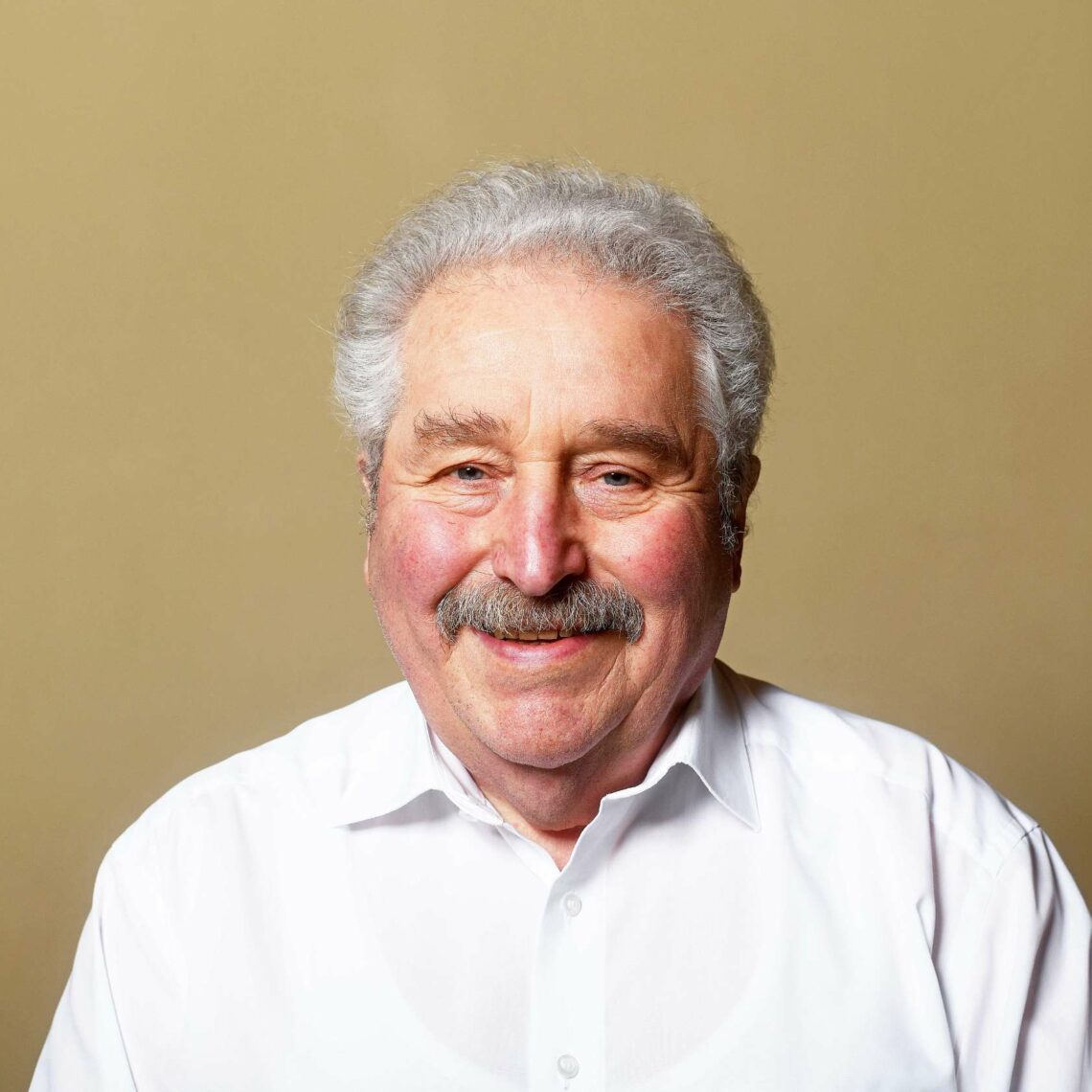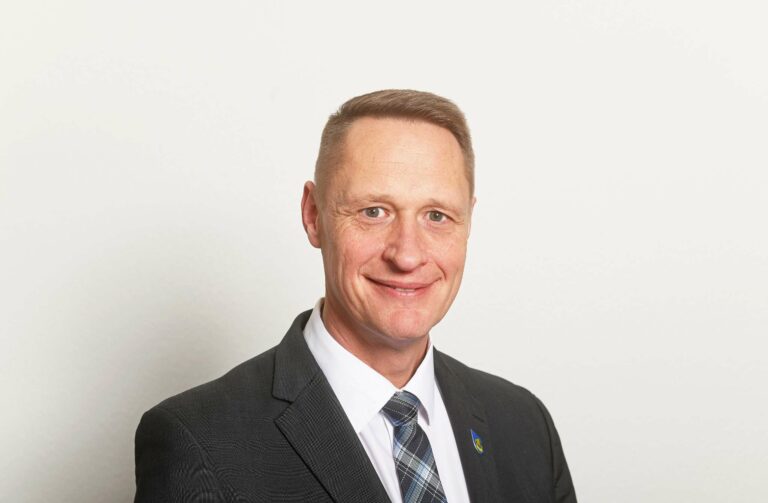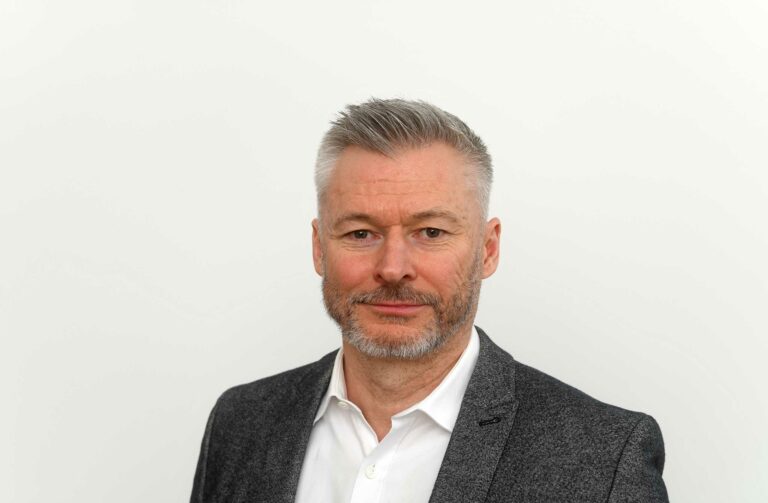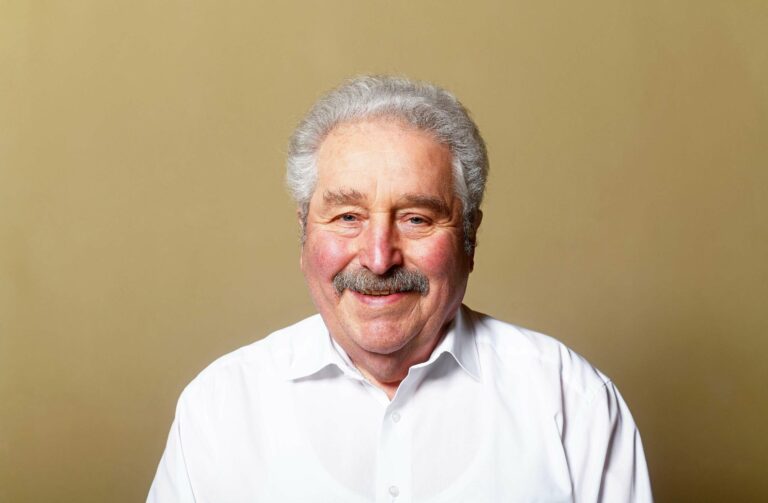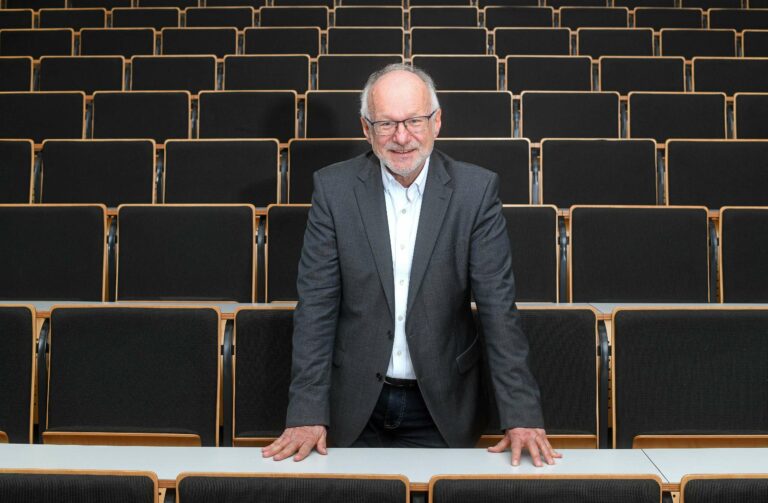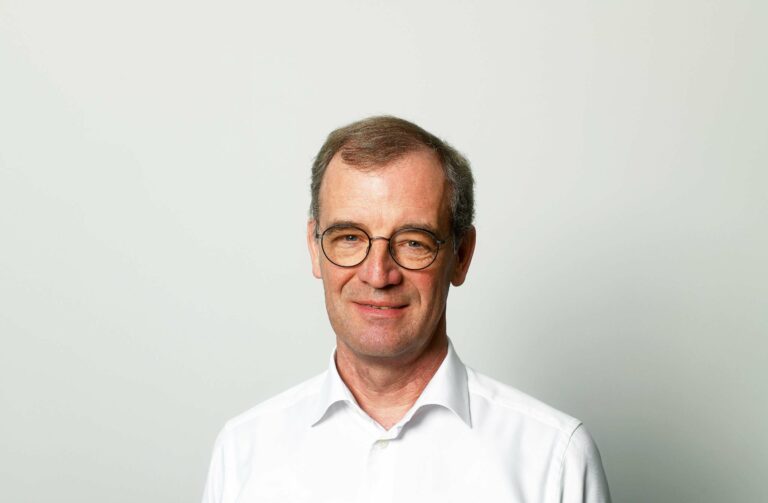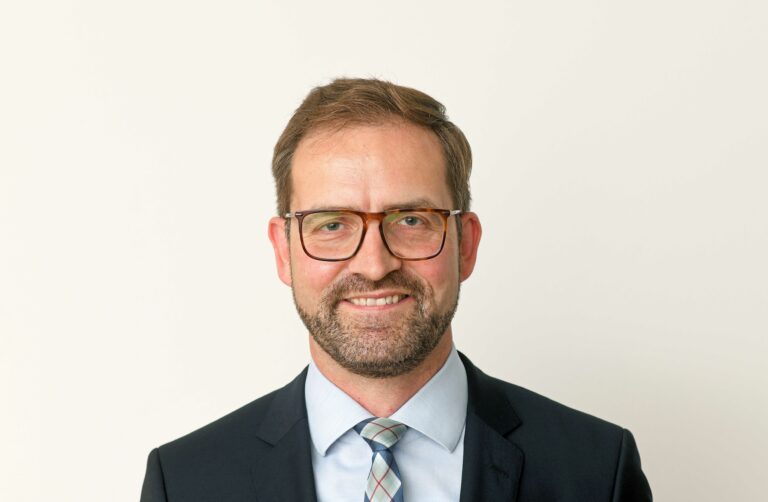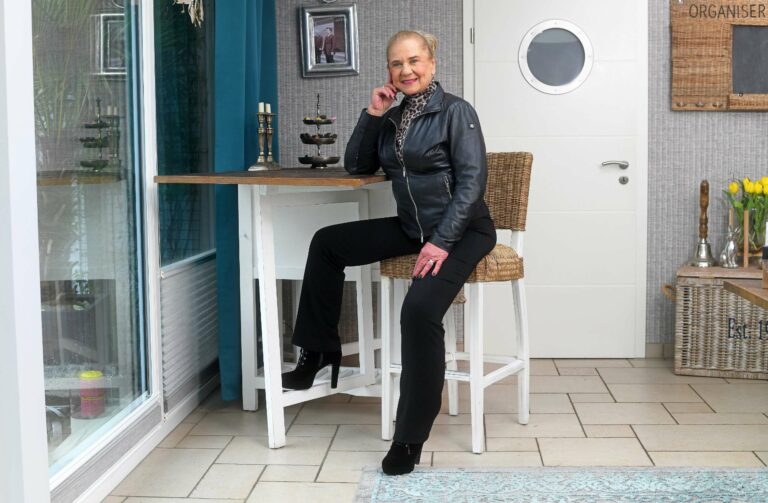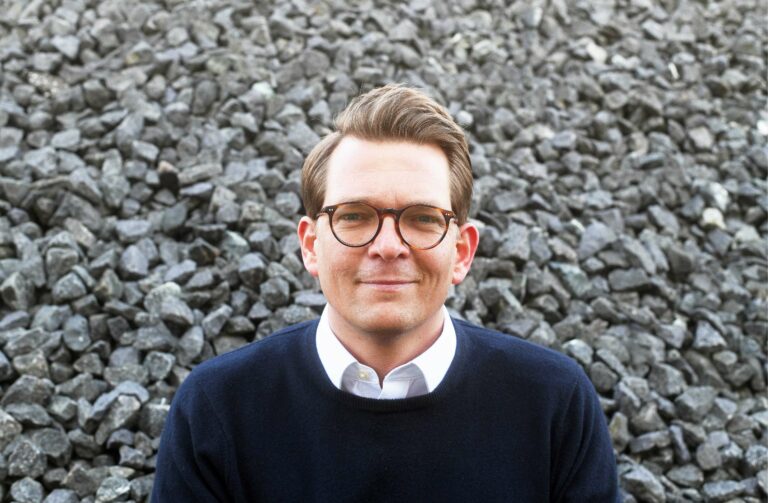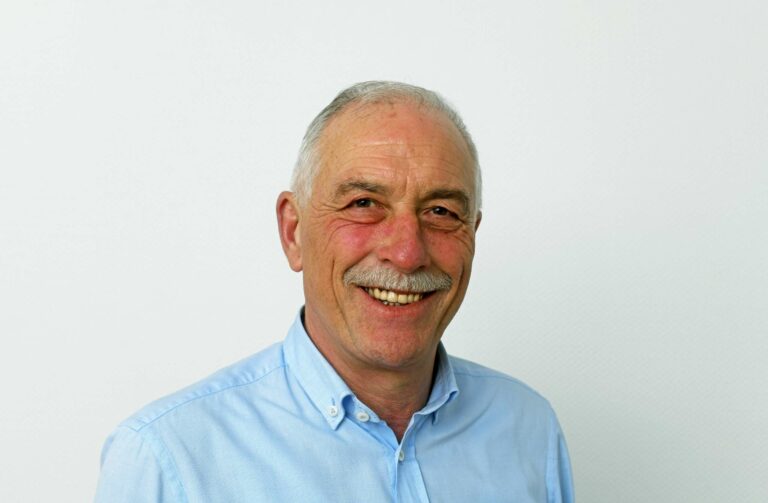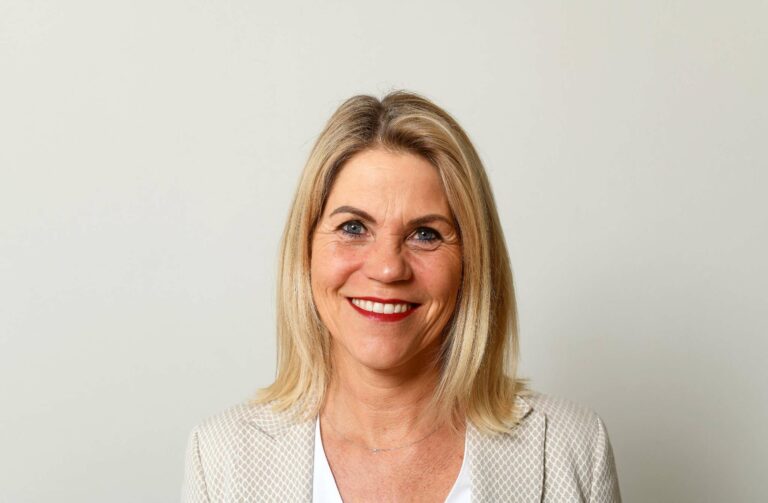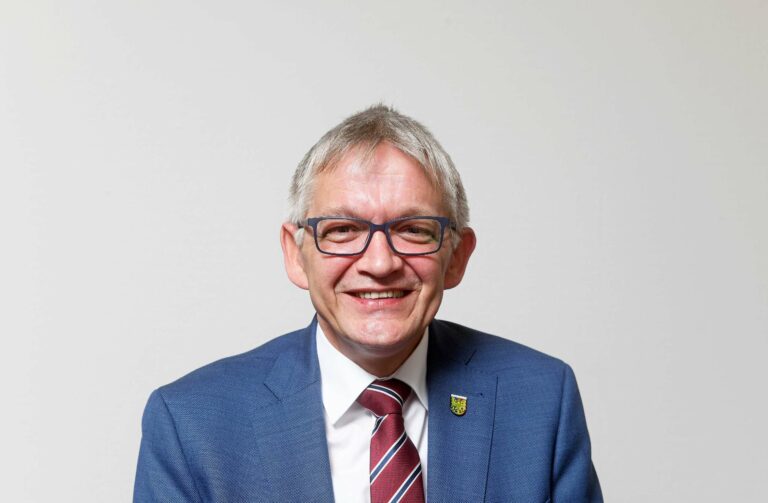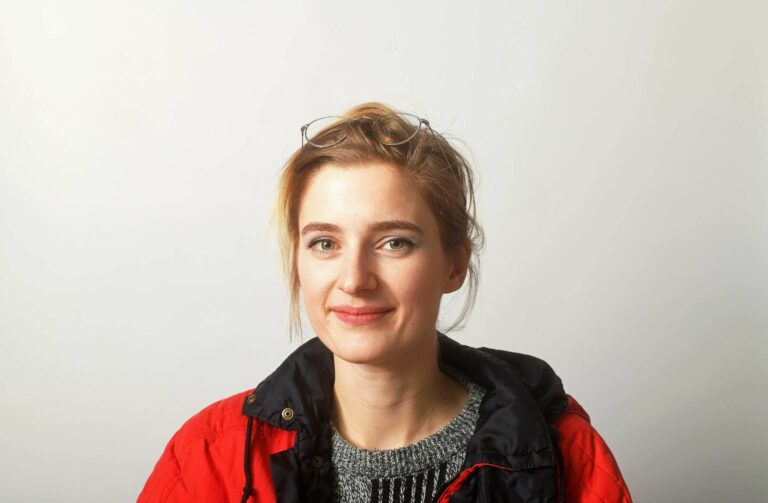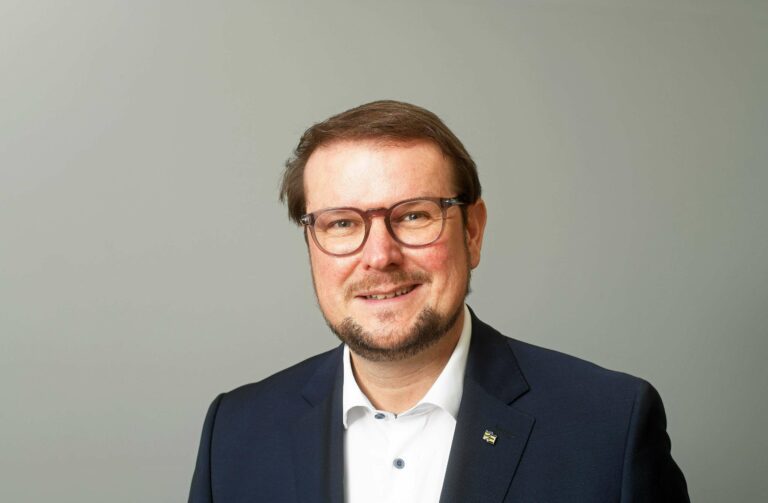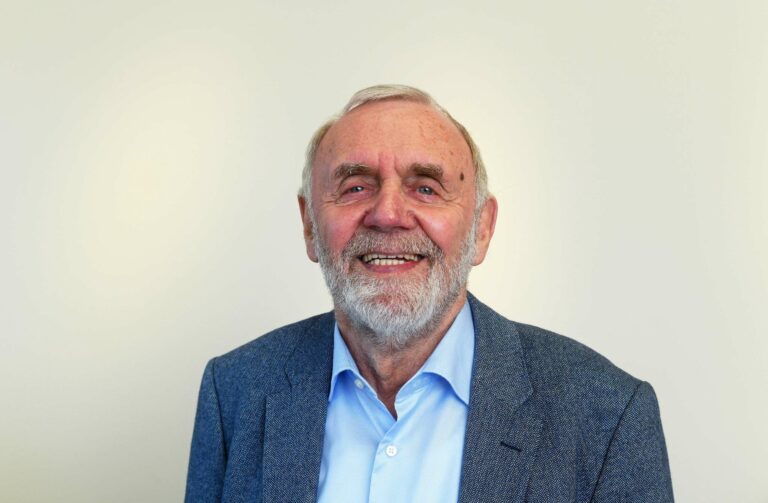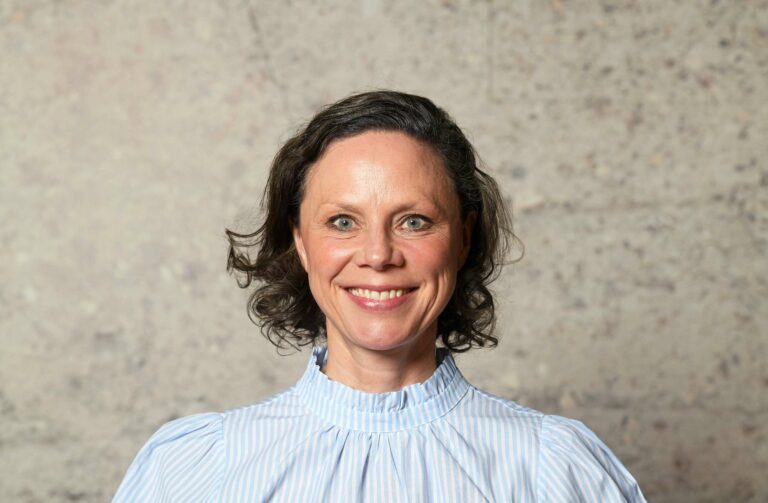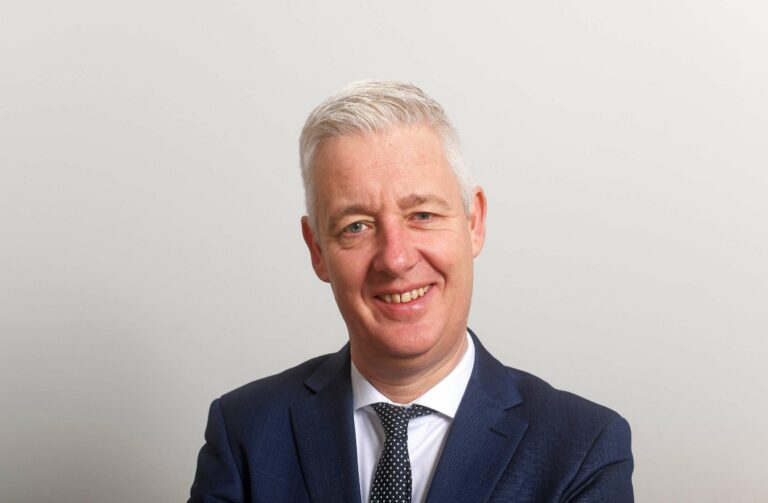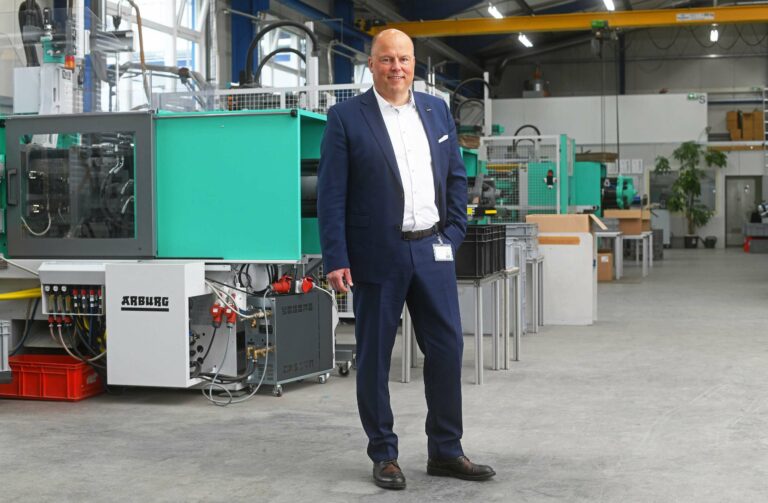“When I’m convinced about something, it can make me really stubborn.”
Anyone who doubts that social advancement is possible in Germany should take a look at Rico Mecklenburg’s bio. The “Emdener-by-choice” has made it from apprentice lathe operator via teacher, headmaster, town councillor and mayor to president of the association of regional municipalities known as “Ostfriesische Landschaft”.

Top man in Ostfriesland? Rico Mecklenburg can’t suppress a grin. “An honorary title”, he emphasises. “It sometimes embarrasses me when people say that, but it also humbles me every time.” Since November 2014, the man from Emden has been the president of the Ostfriesische Landschaft, which used to be called the Ostfriesische Landstände (estates of Ostfriesland) and one of Germany’s oldest regional associations.
His story begins in Oldenburg. In 1949, just a few months before the founding of the Federal Republic of Germany, the son of war refugees grew up not far from the town’s air base. Times were hard back then, with people suffering from the consequences of the disaster. It took a long time before what later became known as the “economic miracle” started to have any effect.
Rico went to the nearby school. “I tagged along with the rest, was just an average pupil, better in some subjects than in others.” The teachers were a bit strange, he remembers: “Most of them seemed to feel their job was to tame us. Any learning happened more by chance.” One of the teachers left a lasting impression: Mr Hopp. “He used to wear a plaid hat which he’d hurl across onto the coat hooks first thing in the morning. He won us over with that.”
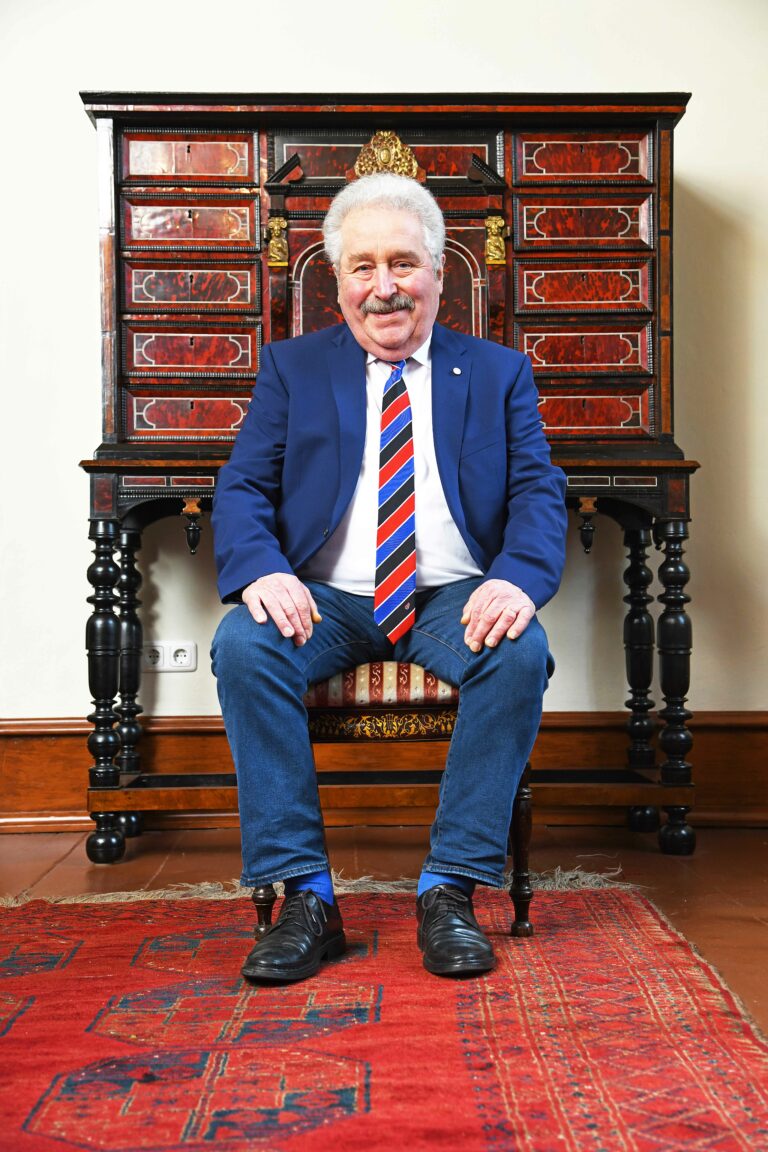
Learning history from the union
With his school leaving certificate in his pocket, he stepped out into life. Rico found work as an apprentice lathe operator at the electrical engineering company AEG, where his mother was employed. He was helped along by his interest in technical things – “I always mended my own bike”. Soon he was allowed to work on the machines.
On being elected as one of the company’s youth representatives, he meanwhile made his first acquaintance with the IG Metall metalworkers trade union. “This period definitely had a profound effect on me”; he emphasises looking back. “Above all, the meetings of the union youth group helped us catch up on a lot of things we were never taught at school.” One brief encounter remains for ever in his memory: “Once, at a rally on Oldenburger Pfedemarkt, I actually found myself standing right next to Willy Brandt.”
While Rico’s apprenticeship was coming to an end, Germany went through a recession in 1966/67. Like many other companies, AEG had to reduce its workforce. There was no chance of a job for the newly qualified skilled worker. Working as a lathe operator, he produced bearing plates for washing machine motors. But it was hard work. Piecework, shifts and working at the weekend were all part of normal routine for the workers.
The lack of any decent job prospects led Rico Mecklenburg to sign on for a four-year stint with the German armed forces, despite intensive talks with the trade union about opting to be a conscientious objector with the union youth movement. Instead, he joined the army aviation corps in Rotenburg an der Wümme. The soldier with technical flair trained as a helicopter mechanic. On completing his military service and undergoing further training to become an aircraft mechanic, he found work with Vereinigte Flugtechnische Werke in Varel.
Getting rid of the blight of the grand coalition
So far so good. A fairly typical bio for a young man in the 1960s and early 1970s. But the course of Mecklenburg’s life was about to change. Two days after his 23rd birthday, in January 1972 he joined the SPD.
It was the era of the great reform movements. Throughout Germany, the younger generation wanted to get rid of the blight affecting the country, particularly during the years of the grand coalition. One idea was let school children know early what working life is like. One of the comrades asked the young party member whether he’d like to share his experience as a company youth representative. He would. He did it so well that the director of studies at Oldenburg commercial college asked him whether he’d thought about going into teaching.
A teacher with just the elementary school leaving certificate? After being inconceivable for a long time, by the early 1970s this had now become possible. Mecklenburg went through the adult education process to take the university entrance examinations and started his teacher training in history, technology and social studies. In 1976, he began working as a teacher at the Wallschule in Emden. He stayed in the teaching profession until 2014 when he retired, after being headmaster of the primary and secondary school in the Emden district of Wybelsum for the last 20 years.
Stubborn but with a desire for harmony
But he remained involved in politics even as a teacher. Starting in 1991, for 25 years he was an SPD member of Emden town council, eventually becoming leader of the council and honorary mayor. He had a particular focus on education: as a man of principles, he didn’t not always toe the party line. “When I’m convinced about something, it can make me really stubborn.” Otherwise, he admits, he appreciates an atmosphere of constructive debate and even harmony.
He had had contact with the Ostfriesische Landschaft since 2002 and was elected to the assembly in that same year. According to the statutes, this is the “democratic-parliamentary representation of the population of Ostfriesland”. It has 49 full members, seven councillors and a president. It is the most important decision-making body of the Ostfriesische Landschaft, usually meeting twice a year.
The roots of the Ostfriesische Landschaft go right back to the early Middle Ages. In those days, Ostfriesland extended from Zuidersee in the present-day Netherlands to the lower stretches of the river Weser. The people were free and governed themselves with the consent of the king and empire. In 1464, Emperor Friedrich III issued a document assuring them that all rights and freedoms that they had held from ancient times, and which had been confirmed by his predecessors, would remain valid. This promise is seen today as the birth of the Ostfriesische Landschaft. Despite all the trials and tribulations throughout the centuries, it has survived to this day as the central institution of the region.
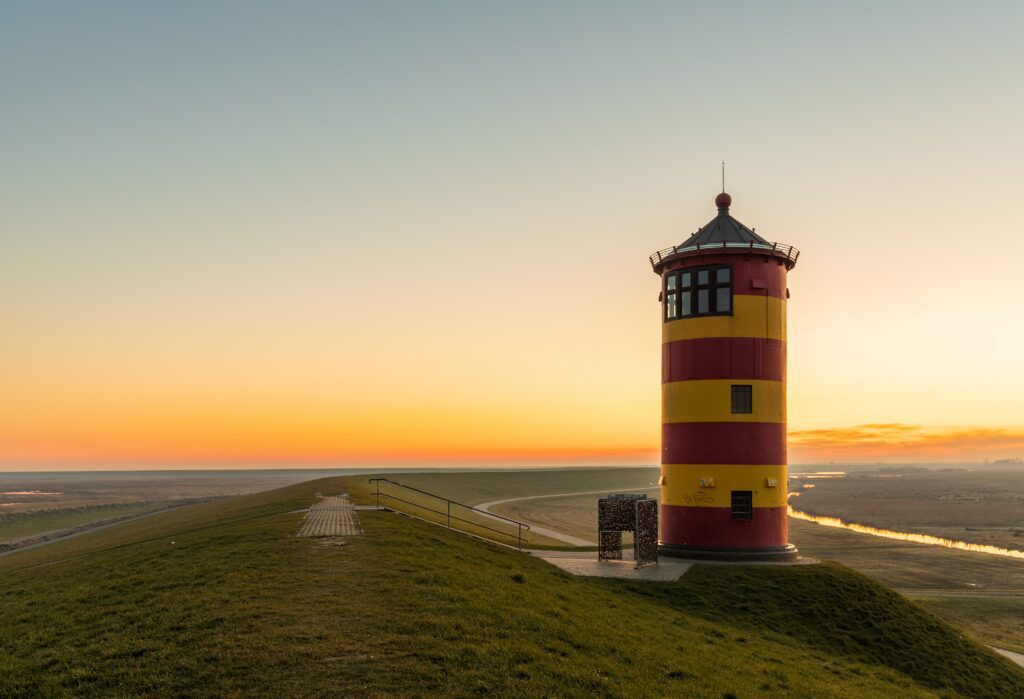
Orientation, identification and future
In 2014, Rico Mecklenburg was elected to succeed Helmut Collmann as the sixth post-war president of the Ostfriesische Landschaft. In 2020 he was confirmed in office for another six years.
In his inaugural speech, he talks a lot about traditions, and also about tomorrow and the day after. For him, Ostfriesland is not a museum, but instead “a modern, future-oriented region with a high quality of life, an impressive history and a special building culture”. He also emphasises the extent to which the people living here identify with their home region. “Particularly in this era of globalisation, imponderables, anxieties and major challenges, people are searching for orientation, stability and community.”
The president sees his main tasks in focussing on the connective aspects for the good of all Ostfriesland. He wants the Ostfriesische Landschaft to be the region’s mouthpiece, safeguarding the interests of its people and reinforcing regional concerns, with an emphasis on culture, science and education.
Inclusion in the UNESCO list
When the Lower Saxony Ministry for Science and Culture made the proposal in April 2022 to include the Ostfriesische Landschaft in the UNESCO Intangible Cultural Heritage List, it suited the man now truly at home in Emden to a tee. According to the official application, the institution stands “for the concrete expression of a way of life in the region of Ostfriesland, with its background in the cultural tradition of Frisian freedom that is still cultivated and lived today”. At the same time, the Ostfriesische Landschaft is “a modern institution that takes on sovereign tasks and stands in the legitimate succession of the historical estates in the tradition of Frisian freedom”.
The “top man in Ostfriesland” thinks that’s right and good. “It’s a great honour to be on the UNESCO list”, says Rico Mecklenburg. “The fact that this application has been made illustrates the esteem that we have acquired over the centuries.”

